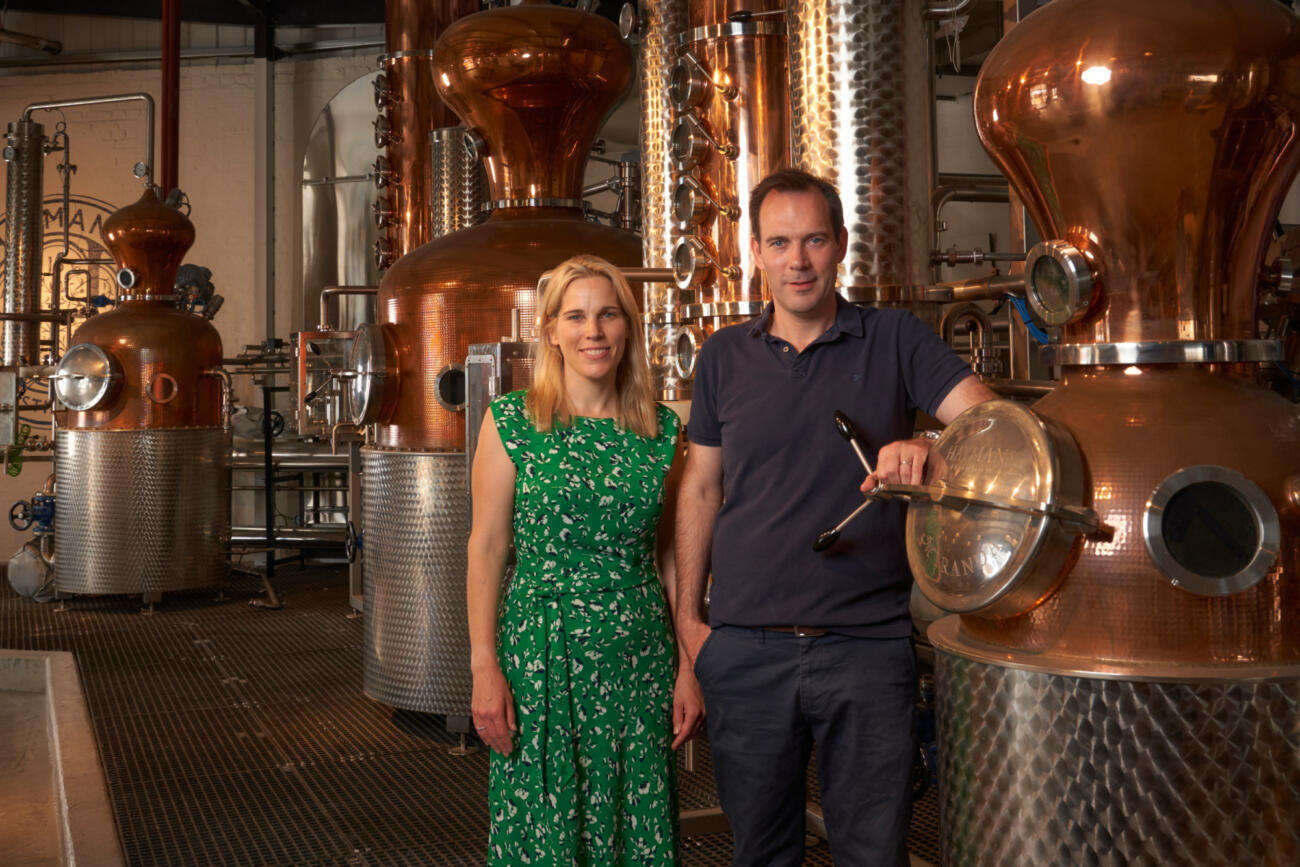Insights

The only family of original London gin distillers still making gin today
Meet the Haymans
It was Miranda and James Hayman’s great, great grandfather, pharmacist James Burrough, who started making gin. Something of an innovator, he created insect repellent and toothpaste before focusing his attention on gin, first buying a small distillery in Chelsea in 1863.
Burrough's contribution to modern gin as we know it was significant. Not only was he the first distiller to add now widely-used citrus botanicals as a key ingredient to his gin but he also pioneered the ‘London Dry’ style which took over from the Old Tom gins, more popular during his era when gin houses dotted the streets of London.
Today, Miranda and James run Hayman’s, with their father – Master Distiller, Christopher. We caught up with the brother and sister team to hear about their experiences of running a business that has been in the family for over 150 years.
How did your father’s involvement with the family business come about?
James: Dad joined the business in 1969 on leaving university as part of a ‘proto’ graduate training scheme, working in different areas of the business. When the company was sold in 1987, he found himself the only fourth generation family member in a company now owned by a third party. He quickly came to the conclusion that it wasn’t for him, partly due to the realisation that the family’s long-honed skill in distillation would not live on. He made the decision to leave, buy back part of the business and start again.
When did you two know you were interested in a role in the business?
JH: It is hard to pinpoint a time where I knew I wanted to join the business, but I have always been fascinated by gin-making. When we were children, we would come up to London to visit the distillery in the school holidays. It was as much part of life as visiting our grandparents. I loved to watch them bottling the gin. Although I spread my wings when I first graduated to gain a bit of experience outside the family business, I think I had known since childhood that I wanted to be involved.
Miranda: I started my career in the wine trade working for John Armit Wines. I have always had a passion for languages and wanted to be able to use it in my professional life. Dad never put any pressure on me to join the business, but when an opening arose in 2005 to move to Hong Kong to help develop international markets in Asia Pacific, I jumped at the opportunity to move across. After that, it was a natural progression to move again into the gin category as the business grew and shifted its focus.
What are the main challenges of working with family?
MH: When I first joined, I felt a real pressure to prove myself and justify whatever I was doing and why I was doing it. It is probably easier now we are a bit older and more experienced. When you are in your late twenties you are still learning after all.
JH: The hardest thing for me is stopping. I never leave the office or distillery and just switch off. And being family, it is even easier to have a quick call over the weekend or chat in the evening. Even holidays are a challenge. It is a bit like having children: if you go away without them, you’re still going to want to phone up and see how they are. It is the same with a family business.
What is the best thing about working in a family business?
JH: Overall, it is that alignment of family values and a common goal. We both want what is best for the business. We want it to grow, be sustainable and longstanding. I think relationships in family businesses often break down when one party wants to sell and another doesn’t. Unlike many of our peers in the gin category, we are not interested in selling. Running Hayman’s is a marathon and not a sprint.
MH: People often ask us whether we have disagreements, intrigued by the sibling dynamic. Because we are family, we can be very honest with each other which means we get over disagreements relatively quickly. The other thing is our wonderful team in whom we have a very experienced group of people whose opinions we value hugely. We take any tricky issues to them to discuss together. At the end of the day, it’s not just about me and James.
When is the right time to introduce the idea of joining the business to the next generation?
MH: James’ children are a little young, but both of my children have been in to the distillery. One of them told his class at school that he wanted to be a market salesman for Hayman’s Gin which amused me. They do talk about it, but Dad never put any pressure on me or James to join the business and I think that doing so would be quite wrong. They can make their own decisions.
What does it mean to you, Miranda, to be the first female family member to sit on the board?
MH: In the 1940s neither my grandmother, Marjorie Burrough, nor her three sisters were able to represent themselves as shareholders in the company so her husband, Neville Hayman, stepped in. It was such a different time. Dad has always treated James and me equally. It wouldn’t have occurred to him to do things any other way. Although we have another woman on the board, I am proud to say I am the first female family member. And, of course, Marjorie is honoured in our own special way. One of the imposing copper stills in our Balham HQ is named after her!